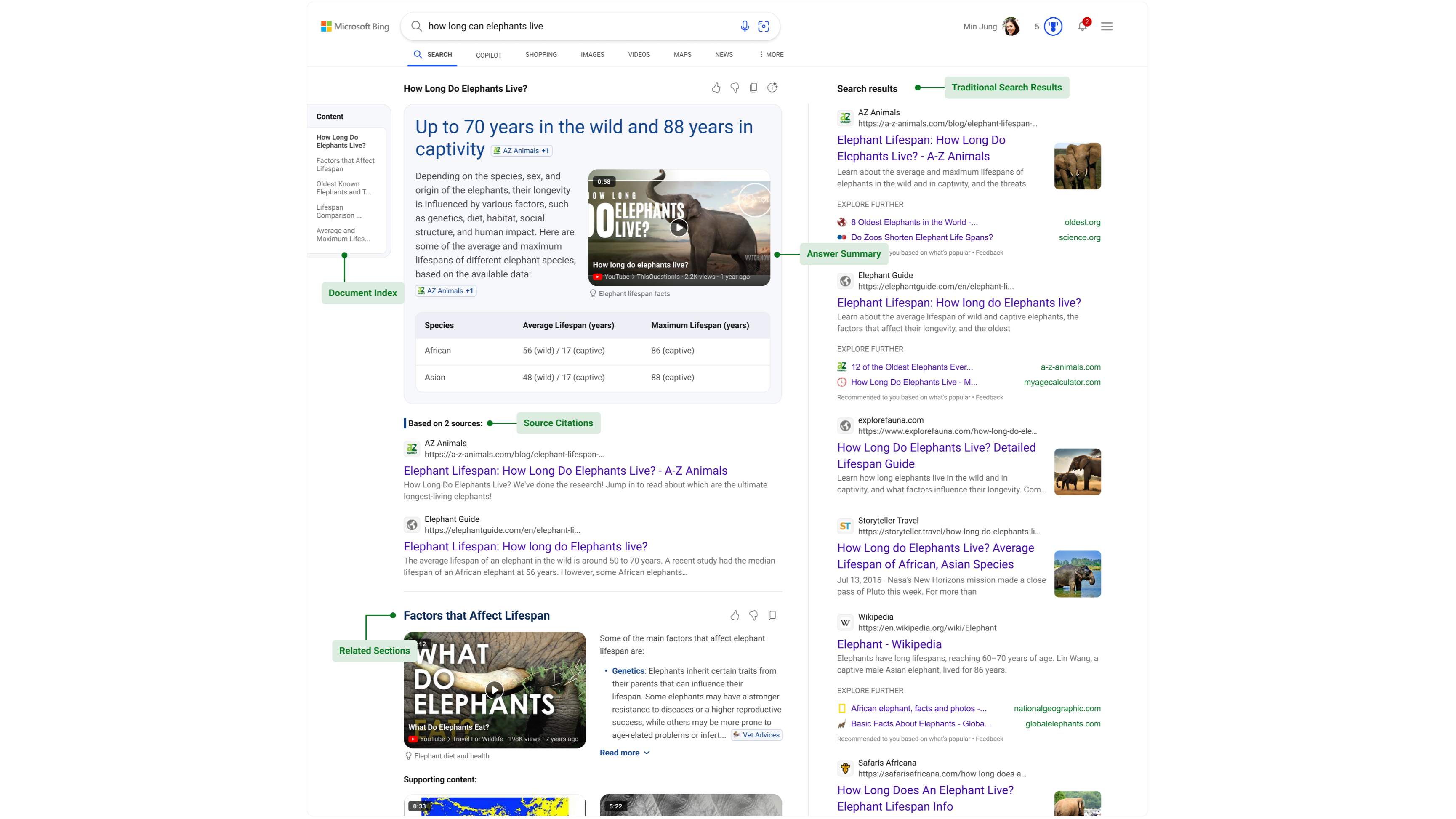Microsoft has just announced a huge update to Bing that overhauls the search engine to put AI-powered answers first.
This means that when a search query is entered, the results page will pop up with a primary AI-generated answer detailing all the curated sources that have been tapped to get that result. You’ll still get the traditional search results on the Bing search page, but they will be presented to the side of the AI-generated material (in a smaller right-hand panel).
The official Microsoft blog post (flagged up by Windows Central) explains this major overhaul as follows: “This new experience combines the foundation of Bing’s search results with the power of large and small language models (LLMs and SLMs). It understands the search query, reviews millions of sources of information, dynamically matches content, and generates search results in a new AI-generated layout to fulfill the intent of the user’s query more effectively.”
This change is currently rolling out to a small number of Bing users, but it’ll presumably become more widely available before too long. From what we can tell there’s no obvious way to turn off the AI results if you wanted to do so.

Embrace the future or endure the present?
This big change isn’t really good news if you’re not interested in AI-powered search, as you’re basically losing two-thirds of your results page to AI, with a relatively small space left behind for traditional search responses.
In its blog post, Microsoft states that it will continue to evaluate the impact that AI search will have on both websites and readers, which is positive news in that things may not be ‘stuck’ this way if there is room for improvement. We can only wait until the new Bing Generative Search has become more widespread to really see what people think of Microsoft’s new search strategy.
Personally, I don’t want any AI-generated answers on my search page at all, but I acknowledge that there are probably a lot of people who might, like students and researchers want questions answered quickly and with sources already cited.
That said, we’ve seen time and time again that AI is not as reliable and accurate as we think it should be – it can be wrong, or pick up errant information quite easily in some cases. Remember Google Gemini plucking strange answers from Reddit posts and telling people to put rocks on pizza?
I can only hope that traditional (non-AI) search isn’t entirely abandoned, and hopefully Microsoft will offer a workable level of control over whether users want AI search results in Bing, rather than having to ignore half of the results presented.
You might also like...
from TechRadar - All the latest technology news https://ift.tt/iyte84p
via IFTTT
Comments
Post a Comment